Passing The Baton: A History Of Soundtrack Composers
Soundtrack composers are often the unsung heroes of film, but without their music, the movies would struggle to come to life.
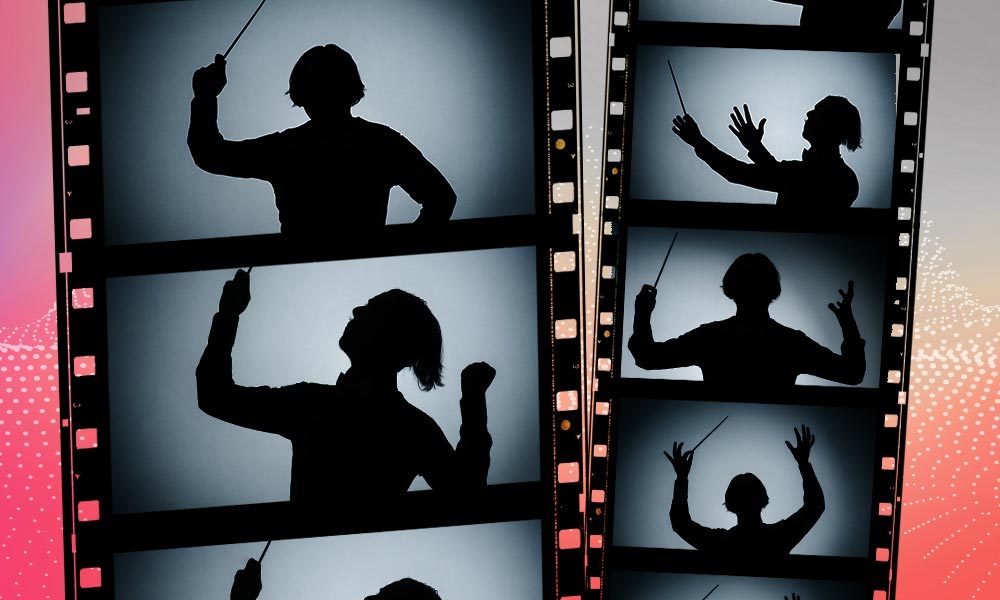
If you’ve got a favorite film, it’s a given that you have a fancy for the music within, but the soundtrack composers responsible are often the unsung heroes of the piece.
The great directors have always relied on their soundtrack accomplices to enhance the experience. It’s impossible to imagine Orson Welles’ Citizen Kane without the audacious debut score from Bernard Herrmann. Welles insisted that “Benny was an intimate member of the family” and used him again for The Magnificent Ambersons.
Listen to highlights from the best soundtracks on Spotify.
Herrmann is even better known for his work with Alfred Hitchcock; famously, the composer ignored the director’s insistence that there be no music at all for the infamous shower scene in Psycho. Good job too, since the stabbing violins sent audiences diving under their seats as Janet Leigh’s Marion Crane encountered motel landlord Norman Bates in a moment that became as iconic as any in film history. Herrmann had also worked with Hitch on The Man Who Knew Too Much, Marnie, Vertigo, and others. His electronic score for The Birds, where he was credited as “sound consultant”, held exactly the right unsettling effect. He was also using a Theremin – on The Day The Earth Stood Still – long before pop groups discovered its weird properties.
The Lyon-born composer Maurice Jarre (father of Jean-Michel) also moved from the orchestral sweep of Lawrence Of Arabia and Dr Zhivago (“Lara’s Theme” is one of the most identifiable moments in film) to the groundbreaking electronic synth arrangements of Witness and the tense symphonic atmosphere of Fatal Attraction.
For sheer bravado, it’s hard to surpass the late John Barry, the Yorkshireman with the Midas touch. His scores for the James Bond movies are arguably as memorable as the movies they adorn, with Goldfinger, Thunderball and On Her Majesty’s Secret Service emerging as classics. Noted for his lush orchestration, Barry’s own pop background encouraged him to be experimental, and he used innovative synths and the cimbalom (a hammered dulcimer) on The Ipcress File.
A direct contemporary of Barry’s is the great John Williams, whose style evolved on scores for TV’s Peter Gunn and Days Of Wine And Roses, and whose name has become synonymous with blockbusters and the über-franchise films. “His Main Title (Theme From Jaws)” and the blackly comic “Promenade (Tourists On The Menu)” are as iconic as Herrmann’s Psycho moment: Jaws without Williams would be like chips without vinegar.
His lusher, more romantic yet light-hearted hand is all across Star Wars: The Empire Strikes Back and the Indiana Jones movies, while scores for Empire Of The Sun, Jurassic Park, and Schindler’s List, all directed by his long-term ally Steven Spielberg, are far darker in tone. (Many long-standing liaisons have emerged from Hollywood, such as Danny Elfman and Tim Burton. The former’s scores include the once-underrated Batman and the spooky Edward Scissorhands.)
A great movie score will include key atmospheric elements: anticipation, action, and resolution, but the definition of what makes a great soundtrack is highly subjective. This writer’s preference is for Roy Budd’s music to Get Carter, but it all comes down to what films you like and which directors you revere. If you’re a Robert Wise fanatic, then West Side Story is just the thing, with Leonard Bernstein, Irwin Kostal, and Stephen Sondheim’s electrifying score and libretto completing what may be the greatest musical of all. Or do Rodgers & Hammerstein (and Kostal) get the nod for Wise’s The Sound Of Music?
Genre fans and devotees of the auteur are well served, too – even if the movie is a one-off. James William Guercio’s score for the 1973 cult cop biker movie Electra Glide In Blue (which he also directed) comes to mind; Danny Zeitlin’s avant-garde jazz confection for the creepy 1978 remake of Invasion Of The Bodysnatchers is another blast. Neither man repeated the experience. Guercio concentrated on his Caribou Ranch empire and Zeitlin admitted he found the exercise too time-consuming and returned to his piano stool.
Some of the most memorable scores take us to the dark side. The classical sound of Krzysztof Penderecki’s classical “Polymorphia” was exactly right for Stanley Kubrick’s The Shining – just as it had been for The Exorcist. But his score for the 1965 Polish movie The Saragossa Manuscript is absolute genius and was one reason why Jerry Garcia, Martin Scorsese and Francis Ford Coppola financed a restoration of the original cut. Later, Scorsese used Penderecki’s “Symphony No.3” in Shutter Island. (Talking of Scorsese – one of film’s most dedicated historians, on a par with Quentin Tarantino – he turned to Herrmann for Taxi Driver, which became the great man’s final score.)
Horror, noir, and science-fiction all demand sympathetic composers to facilitate the mood. The electronic Vangelis soundtrack for Blade Runner captures the dystopian Los Angeles imagined by the writer Philip K Dick, while John Williams went to the edge for another Dick gem in Minority Report.
Let’s stay weird for a moment. How about Angelo Badalementi’s collaborations with David Lynch on Blue Velvet, Twin Peaks, The Straight Story and the mighty Mulholland Drive? Pino Donaggio’s theme for A Venezia… Un Dicembre Rosso Shocking – that’s Don’t Look Now to you and me – which is among the most startling on record, but while we’re in Italy we must pay homage to the Maestro, Ennio Morricone. You’re looking at The Man With No Name riding into shot, Clint Eastwood himself… and strike up the theme to Il Buono, Il Brutto, Il Cattivo; yep – The Good, The Bad And The Ugly.
Morricone’s contributions to Sergio Leone’s stupendous Spaghetti Western movies (actually shot in Almeria in southern Spain) are without peer. From Once Upon A Time In The West to Once Upon A Time In America, his oeuvre is straddled with epic grandeur. Still happily with us at the age of 88, and judging by his Oscar-winning score to Tarantino’s The Hateful Eight, Morricone has lost none of his power. Dio lo benedica…
Morricone always provides the protagonists with their own theme. That device is also used by the Argentinian Lalo Schifrin in the Dirty Harry series, for which he scored four out of the five with strong emphasis on hard bebop and jazz-blues to bring the seamy side of San Francisco into view.
Not all film composers have a standard classical upbringing. Clint Mansell (Pi, Requiem For A Dream, Black Swan, High-Rise) was lead guitarist in Pop Will Eat Itself. Oscar- and Grammy Award-winner Hans Zimmer (Insignificance, The Lion King, Gladiator, Rain Man, The Dark Knight Rises, Dunkirk, etc) is largely self-taught and was once a member of Buggles. Others, such as Alexandre Desplat (The Grand Budapest Hotel, The Imitation Game) are resolutely classical, though in his case a love for Ravel and Debussy is expanded by knowledge of Latin American sounds. Desplat works with equal facility in Hollywood and Paris; meanwhile, across the border, the mystic German ambient composers Popol Vuh share history with Werner Herzog. Their music for Aguirre, The Wrath of God, Heart Of Glass and Nosferatu is particularly recommended.
Italian-American Michael Giacchino is different again. His academic training is from the School Of Visual Arts in New York City. His work includes scores for Disney, Amblin Entertainment and Universal, plus Jurassic World and Star Trek. Perhaps unsurprisingly, Lucasfilm hired him to take the baton from John Williams and score the Star Wars offshoot Rogue One: A Star Wars Story, which is due for release on December 16, the same day as the film opens, and will soundtrack what happens when a band of rebels set out to steal the plans to build the Death Star.
Though they don’t get enough credit, female composers have made their mark. Anne Dudley (Perfect Creature, Les Misérables), Vivian Kubrick (Stanley’s daughter scored Full Metal Jacket), Wendy Carlos (A Clockwork Orange, The Shining with Rachel Elkind), and Miriam Cutler (The Hunting Ground) sit at the tip of a submerged iceberg of creativity, but there are many, many more to explore, including famed BBC Radiophonic Workshop pioneers Daphne Oram and Delia Derbyshire.
Many artists more normally associated with pop and rock like the gravitas of film, since it allows them to age up. George Harrison (Wonderwall), Paul McCartney (The Family Way) and Manfred Mann (Up The Junction) did so with distinction in the 60s, while one-time Phil Spector arranger Jack Nitzsche made a smooth transition. His work for Cutter’s Way, The Crossing Guard and Performance deserves massive props – and it’s worth checking out the latter soundtrack for Mick Jagger’s immortal “Memo From Turner.”
In the following decade, The Mamas And The Papas’ John Phillips provided much of the soundtrack to Nicholas Roeg’s The Man Who Fell To Earth – a cult score which has finally now been released after 40 years in the wilderness. (Though the long-rumored David Bowie score has yet to see the light of day, The Thin White Duke did recommend that pieces by Stomu Yamashta be used in the original film.)
More contemporary gems include one-time Faith No More frontman Mike Patton’s eerie music to The Place Beyond The Pines, and former indie rocker Jóhann Jóhannsson’s ice-cold backdrop to Prisoners.
Not surprisingly, modern score composers tend to have a whiff of the polymath about them. Nick Cave has made the transition with ease and received acclaim for The Assassination Of Jesse James By The Coward Robert Ford, The Road and Hell Or High Water, often collaborating with his musical accomplice in The Bad Seeds, Warren Ellis. The duo are in heady and often bizarre company that includes Mark Knopfler (The Princess Bride), Michael Penn (Boogie Nights), Basement Jaxx (Attack The Block) and Yeah Yeah Yeahs’ Karen O (Where the Wild Things Are).
Also worthy of note are one-time Beck and Kanye West collaborator Jon Brion (Eternal Sunshine Of The Spotless Mind), Ry Cooder (Paris, Texas), Badly Drawn Boy (About A Boy), Isaac Hayes (Shaft), Daft Punk (Tron: Legacy), Jonny Greenwood’s thrill-packed work on There Will Be Blood and Curtis Mayfield’s exceptional soul/funk score to Superfly.
So, this is by no means the last word. The soundtrack is an organic and evolving medium: one of the main reasons why we want to go to the movies and get lost in the moment. When the lights come up, don’t rush to the exit. Stick around for the credits.
Discover more about the cultural impact of John Williams Star Wars score.


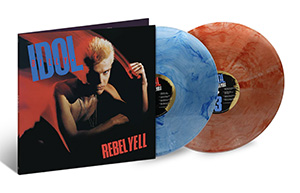
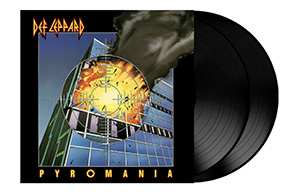
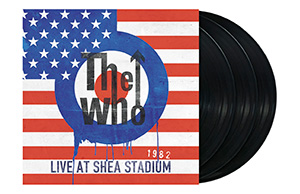



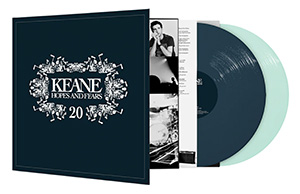
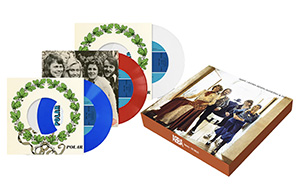
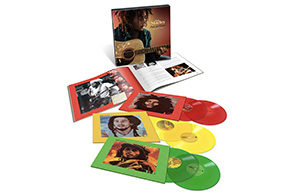
Dave
November 22, 2016 at 5:25 pm
Thanx for the great article! What do you think of John Williams’ collaboration with Oliver Stone? I love his themes for Born on the 4th of July (’89) and JFK (’91) & I’ve seen JFK so many times that I can hum the incidental music cues, sometimes at inappropriate occasions. I heard that Stone, perhaps needlessly, asked Williams to “pull out all the stops” and “go for an Operatic feel.”
Jason Draper
November 24, 2016 at 11:18 am
Hi Dave – as far as we’re concerned, John WiIliams is pretty much untouchable. He could collaborate with a paper bag and make it sound fantastic. (We’ve heard that “Epic” is his middle name… not sure how true that is, though!)
Jim
November 20, 2023 at 2:38 am
I’m disappointed Henry Mancini is not even mentioned in passing. Moon River, The Days of Wine and Roses, Pink Panther, Peter Gunn and Mr. Lucky are unforgettable.